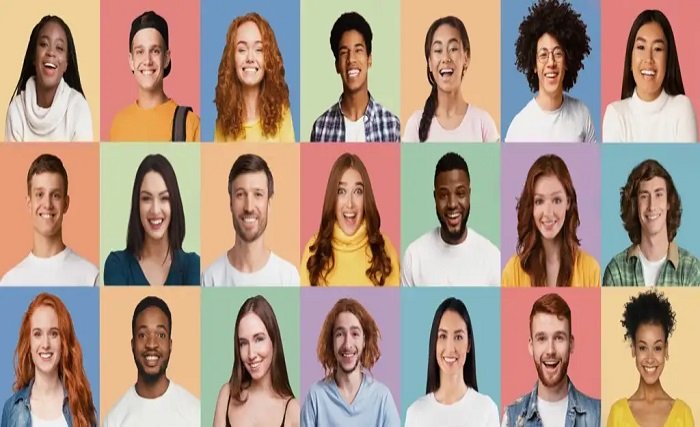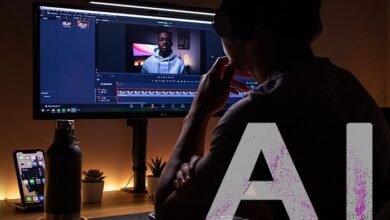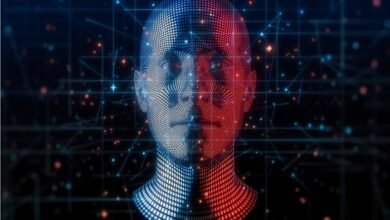Face Search Online: How It Works, Benefits, and Ethical Implications

They find faces via search online, the programs have become one of the great transformations of this modern era. This technology provides access to search algorithms that allow users to swipe a photo and search for the face on the internet. Face search online tools are helping to connect images with identities whether it be identifying celebrities, tracking down lost people, or investigating possible matches for criminal cases. In this blog post, we will discuss how face search online works, what it means, and its effects on society.
The technology that allows people to find someone’s face on the Internet is based on artificial intelligence (AI) and machine learning algorithms that recognize and compare specialized facial features, including the distance between one’s eyes, the measurements of one’s nose, and the contours of the jawline」 Instead of searching by default keywords or metadata as in traditional image search engines, online face search systems recognize patterns in the images themselves to find similar ones.
How Does Face Search Online Work?
The technology that powers face search online is rooted in computer vision, a subset of artificial intelligence. Using complex algorithms, these tools scan and analyze the features of a face present in an image and compare these features to a huge database of faces already collected from different Web sources. Suppose a user wants to do a face search online, once the user uploads a photo to the online service. In that case, the system can break down the facial features, and create a biometric template that is a unique identifier to be matched with others.
Fundamentally, a face search online algorithm is not dependent on the content of the image, but rather on corresponding points on the face—known as facial landmarks—that allow one human to look so markedly different from another. These references are rendered via machine learning techniques to create a “faceprint” that’s stored and eventually compared to other images to identify a match. Examples of machine learning in this field include wildlife conservation efforts to reduce poaching, and facial recognition systems that identify individuals with faulty accuracy.
Face Search Online Applications
Face search interface technology has a wide variety of uses in different industries. Face search online tools are revolutionizing numerous industries, from improving security systems to assisting social media platforms. Enabling the search for criminals such as identifying suspects, missing persons, or criminals is one of the key uses.
Moreover, face search online is commonly adopted in social media, which are, so to speak, dependent on it to automatically recognize and mark people in pictures, e. g. tagging them on Facebook and Instagram. Face search on the web allows marketers to focus on particular demographics by looking at consumer behavior statistics. These applications are already in wide use, quickly becoming integrated into our online lives and making them more convenient yet also raising issues of privacy and consent.
Use of Face Search Online Technology Advantages
Face search online technology has several benefits. On the practical side, it streamlines things that typically take hours of human labor. For example, a security officer can use an online face search to match a suspect in just a few seconds by matching images from surveillance cameras with databases of known criminals. In the same way, the technology can be used to locate missing persons, reconnect families, or assist with customer support by matching clients with their previous conversations.
Outdoor face search online is also a powerful tool for businesses. Companies can track images across various social media platforms to better understand the behavior of consumers, screen trends, and better target their marketing strategies. This enables businesses to engage with their target markets and tailor their offerings which drives profits.
Facial Recognition Goes on the Face Search Online
Although face search online is highly beneficial, it also poses some ethical challenges. The biggest issue is privacy. People may not know they are being tracked, or even if they know they do not think it is a problem. The fact that it is online enables people to collect them, and it does not have to be explicit consent of the people, maybe it may violate your privacy.
In addition to that, this technology itself comes with a lot of issues related to its brute use as well. Criminals and malicious actors could misuse face search online for stalking, identity theft, or other illegal actions. Another danger is that governments and corporations may use face searching online to supervise and control populations, becoming a “Big Brother” society where everything is logged and recorded.
How have Face Search Online Affected Our Off-Line Privacy
The most debated aspect of face search on the internet is its effect on human privacy. At a time when almost everything we do is digitally documented, this tracking opens up huge privacy risks as it allows people to be tracked, identified, and targeted by their faces. With face search online, it seems that one mere photograph can unleash a wave of personal information being uncovered about someone, including their social media profiles, location history, and personal choice.
This is particularly troubling when face searching technology is used to extract images online without the semantics of consent, or people are inadvertently entered into the database. Facial recognition tools have been used without people’s knowledge in numerous public places, from airports to shopping malls. This not only highlights the dangers of the misuse of surveillance but also the potential for discrimination, with some groups being disproportionately singled out as targets.
Face Look Up Online Generally in Law And Protection
The law enforcement and security systems today are significantly reliant on face search. Law enforcement bodies and intelligence services around the world are becoming more and more reliant on face recognition technology to solve crimes, locate criminals, and prevent terrorist activities. By searching online for a face and cross-checking with databases, law enforcement can rapidly identify suspects, missing persons, or fugitives from justice.
But the reverse face search phenomenon on the web for surveillance too is worrisome for civil liberty. Critics warn that this technology’s widespread availability would enable innocent civilians to be tracked and would ultimately erode privacy rights. This should be especially worrisome in authoritarian regimes where the government could deploy face recognition to silence dissent or target certain populations.
The Future Development of Face Search Online Technology
Face searches on the net will be truly mind-blowing in the future. Expectations are that online face search tools will get even more accurate, faster, and widespread as AI and machine learning progressively develop. But it would also open up new avenues for surveillance and control, which could improve things like personal security, customer service, and social media while also introducing even more potential risks.
Technologies such as 3D facial recognition, real-time face tracking, and augmented image processing are going to make online face search even more advanced. Face online search will become increasingly pervasive in both personal and professional settings.
How to Protect Your Privacy When Using Face Search Online
While face search can be fun, it is potentially dangerous on the web so you should do things to ensure your safety and privacy. One way to protect your data is to be selective with what you share on the internet. If you post any personal information in the public domain, do not add facial details or photos to it. In addition, most websites and social media platforms now give you the ability to control privacy settings, so use those options to help limit who can see your images.
Alternatively, you can use certain devices or apps that can block or blur facial recognition technology. For example, there already exist anti-surveillance apps that disguise you from the cameras and prevent you from being detected by a face recognition camera. You may also ask these specific websites or databases to remove your image if you think it is being inappropriately used for face searches online.
Conclusion
The face search online can be used widely in digital security, marketing, and law enforcement which is a ground-breaking technology. Yet its increasingly widespread use raises serious ethical issues — particularly around privacy and the risk of misuse. As this technology evolves, it will be important for society to balance its benefits with the rights of the individual. It’s looking as if the future of search on the internet may be a lot more realistic, though that determination will greatly depend on both science and law.
FAQs
What is face search online? Face search online is a technology that allows users to search for faces across the internet by uploading an image. It uses facial recognition to match the face to other images found online.
How accurate is a face search online? Face search online technology is very accurate, but its effectiveness can vary based on factors such as quality, angle, and lighting. In optimal conditions, some systems attain near-accuracy.
Is the face search online open to the general public? Yes, there are face search online services available to the public. “A lot of platforms, PimEyes as an example, Google Images as another example, allow users to search for faces using images they upload.
Is the online face search applicable for criminal investigations? Yes, law enforcement agencies use face search online to identify suspects, find missing persons, and investigate crimes. And it is the hard-sewn fabric of 21st-century policing.



